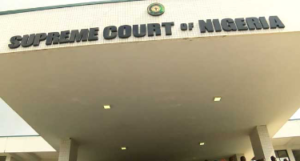A Court of Appeal in the United Kingdom has decisively dismissed the appeal lodged by Process & Industrial Development (P&ID) regarding a previous judgment that halted the enforcement of an $11 billion award against Nigeria. This unanimous decision, delivered by Lord Justice Snowden, marks a significant victory for Nigeria in its ongoing legal battle with P&ID.
The case traces back to a controversial contract between Nigeria and P&ID, which resulted in a massive arbitration award in favor of the company. However, allegations of fraud and corruption have clouded the legitimacy of this award, prompting Nigeria to challenge its enforcement.
In the recent judgment, one of the key issues raised by P&ID concerned the £43 million legal costs, which the lower court ordered to be paid in British pound sterling rather than in naira. P&ID argued that since Nigeria had funded its legal services by converting naira from its consolidated revenue fund, the cost should be payable in naira.
However, Lord Justice Snowden, in his detailed ruling, sided with Nigeria’s straightforward argument. He noted that Nigeria had been invoiced in sterling, incurred liabilities in sterling, and paid its legal bills in sterling. Therefore, it was logical and appropriate for the cost order to be made in the same currency.
Snowden stated, “In my judgment, therefore, the judge was right to accept Nigeria’s straightforward submission that because Nigeria had been invoiced and had incurred its liability to its solicitors in sterling and had paid those bills in sterling, the court ought to make its Costs Order in sterling.”
 The judgment further underscores the principle that costs should align with the currency in which the liabilities were incurred and paid, thereby simplifying and ensuring consistency in the settlement of legal fees.
The judgment further underscores the principle that costs should align with the currency in which the liabilities were incurred and paid, thereby simplifying and ensuring consistency in the settlement of legal fees.
In addition to the issue of legal costs, the appeal also touched on broader questions of fairness and the appropriateness of the lower court’s decision. However, the Court of Appeal found no compelling reasons to overturn the previous judgment, thereby upholding the halt on enforcing the $11 billion award.
This outcome is particularly significant for Nigeria, as it not only mitigates the immediate financial burden posed by the award but also reinforces the country’s stance on the legitimacy and fairness of the original arbitration process. The decision reflects a rigorous judicial examination of the facts and arguments presented, ultimately favoring Nigeria’s position.
The ruling has been published on the UK judiciary’s website, offering transparency and public access to the court’s reasoning and conclusions. This case highlights the complex interplay between international arbitration, enforcement of awards, and national legal considerations, setting a precedent for similar disputes in the future.
For Nigeria, this judgment represents a critical step in safeguarding its financial and legal interests on the international stage. It also serves as a reminder of the importance of thorough legal representation and the potential for judicial systems to address and rectify perceived injustices in arbitration awards.
As this legal saga continues to unfold, the recent ruling by the UK Court of Appeal stands as a testament to the robust legal arguments presented by Nigeria and the diligent scrutiny applied by the judiciary in such high-stakes cases. The dismissal of P&ID’s appeal not only halts the immediate enforcement of the $11 billion award but also reinforces the credibility and integrity of the legal process.




